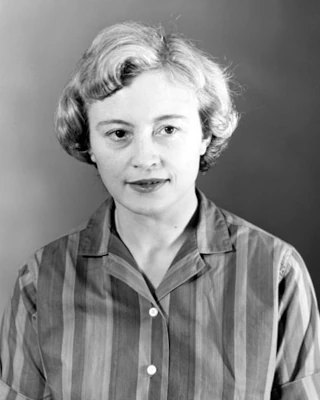
Margaret Burbidge is best known for her fundamental contributions to astrophysics, particularly in the field of Chemical Element Formation in stars and Galaxy Structure. Her work in Spectroscopy revealed the physical mechanisms at work in the universe.
With her husband Geoffrey Burbidge and astrophysicists William Fowler and Fred Hoyle, Margaret Burbidge co-authored the famous paper on stellar nucleosynthesis, a fundamental theory on the formation of chemical elements in stars. This theory was crucial for our understanding of the chemical evolution of the universe.
Stellar Nucleosynthesis, a subject on which Margaret Burbidge worked extensively, describes the process by which chemical elements are created inside stars. This work demonstrated that most chemical elements, such as carbon, oxygen, and iron, are produced in stars during their lives and when they explode as supernovae.
This model reconciled many astronomical observations and had a profound impact on nuclear physics and modern cosmology.
In addition to her work on nucleosynthesis, Margaret Burbidge also contributed to the understanding of galaxies and quasars. She conducted research on the light spectra of these distant objects and provided valuable insights into the energetic processes occurring within them, including the creation of supermassive black holes at the centers of galaxies.
Margaret Burbidge not only contributed to major scientific advances but also served as a role model for women in science. At a time when women were often excluded from major scientific institutions, Burbidge made her mark and gained recognition for her work while having a successful career in both research and teaching.
Her commitment to gender equality in the scientific community inspired many young scientists to pursue careers in male-dominated fields.
Margaret Burbidge published numerous scientific papers that shaped our understanding of astrophysics. Her legacy endures through her discoveries and influence on generations of astronomers who followed her. She was also an active advocate for international cooperation in astronomy.